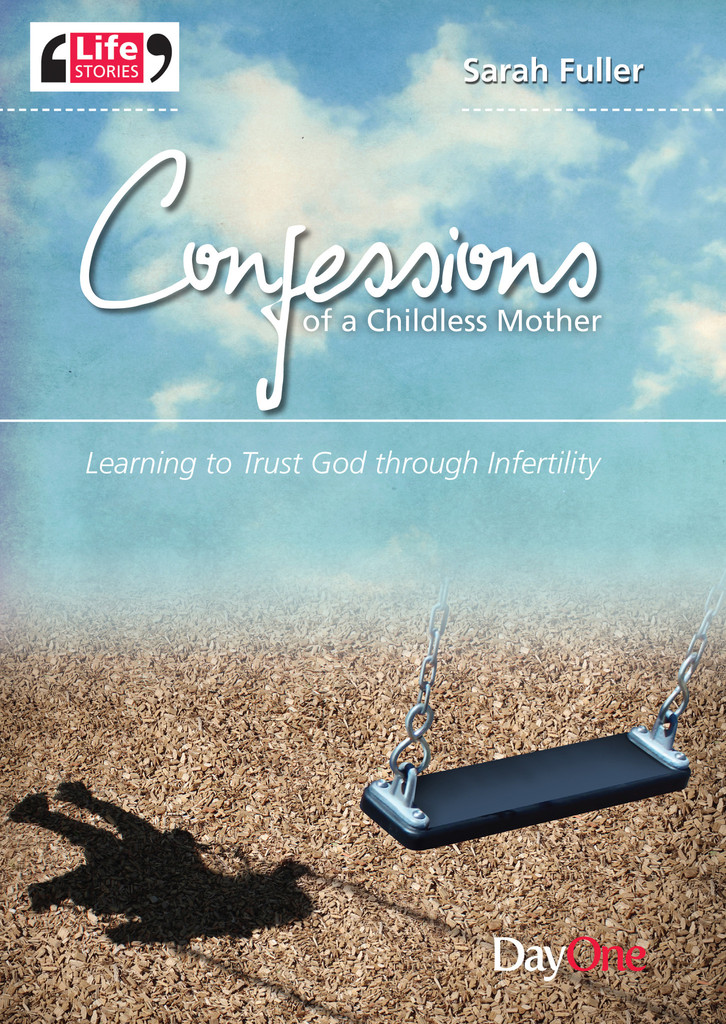Infertility appears to be affecting an increasing proportion of people in the UK, to varying degrees. It is such a relevant issue today. The grief involved can be indescribably intense and unremitting. Yet the suffering may go unacknowledged by many others and be misunderstood, sometimes leaving the sufferers without any meaningful help
As we have discovered, a professing Christian who struggles with infertility finds herself, or himself, struggling vehemently with no less than the sovereign God of providence. From our own experience we have learned that whilst struggling with infertility and perhaps with God, who allows the situation, it helps for others to acknowledge our pain and give support to overcome it. Most of all, we need to collapse into the arms of our Comforter and find him to be our ever-present help in time of need.
A spiritual struggle
For Christian couples suffering infertility, the spiritual aspect of the trial can be perhaps hardest of all. Our loving God, whom we trust, and for whom we seek to live faithful lives, has denied us one of his greatest earthly blessings. Why?
Some infertile people feel that God cannot really love them or has actually abandoned them. Many Christian childless couples wonder why God does not answer their persistent and fervent prayers for a baby. These prayers may have been the broken-hearted pleadings of many years. Some infertile couples fear that God is judging them or has found their marriage to be lacking in some way.
Struggles in church
For a struggling infertile couple, attending church can actually be very hard as there are often many apparently happy families who seem to be greatly blessed by God.
If a church seems to be especially centred around family and children’s work, the childless can feel totally excluded and useless in the very place they should feel most at home.
Bereavement
Those whose hopes for a family have been shattered often undergo similar responses to those who have lost a loved one, such as shock, denial, helplessness, uncontrollable crying, anger, depression, hopelessness, purposelessness, emptiness, a constant searching, despair, loss of various appetites, struggling with sleep and just wondering how they will get through the next day.
As with other bereavements, pain and tears can return very suddenly, sometimes after weeks, months or even years of calm acceptance.
Identity crisis
The infertile woman who had hoped to raise children as her primary role in life may sense she is approaching something akin to a mid-life crisis. If a childless woman has always envisaged society perceiving her primarily as a mother, what will ‘define’ her now?
Marriage matters
An infertile couple may struggle because they do not both respond to this grief in the same way. Sometimes a disparity in emotional response to this hard trial can lead to a gulf dividing husband and wife. This may be widened because they also differ markedly in how they want to remedy the situation.
Medical minefield
Dealing with the medical side of infertility, there is good reason to be wary and prepared, for some tests and procedures may drag on with great intensity and uncertainty. In addition, a couple may have to make decisions about things they had hoped they would never have to think about.
Whilst we are thankful for much that can be done today, we cannot ignore the fact that some treatments are very physically invasive, complex and increasingly questionable on ethical and financial grounds and even for physical and emotional health reasons.
Each couple will somehow have to make a choice about how to proceed, if at all. They need much in the way of compassionate support and informed advice.
Unhelpful responses
Sadly, there are many ways in which people wound the childless. I know how careful we need to be here. I am now convinced that many unhelpful comments made over the years have been made by those who do care very much. However, the world of infertility is outside most people’s experience. I think some are very uneasy with the awful possibility that things may never work out well for us in this trial. So some say almost anything, no matter how thoughtless or clumsy, in an effort to comfort or help.
Help and support
Perhaps in some situations, counselling or other medical support may be necessary to help a distressed couple. But alongside this, Nick and I have increasingly discovered that our greatest source of strength and help has been through knowing our gracious God in increasing depth: through his Word and through the love of his people.
Below is a short summary of ways in which wonderful Christian friends and family, through God’s grace, have helped us. Perhaps they may be helpful to an infertile couple you may know:
- Listen to them, allowing them to acknowledge, describe and vent their feelings and explore the emotions evoked by their infertility. This may be repeated time and again as they attempt to weather the storm.
- If you do not know how to respond, perhaps it is best to say very little, other than to assure them that you are so very sorry and that they have your love, concern and prayers. You could ask them what would be the best way for you to help them.
- Think very carefully before offering platitudes, rebukes, advice, your own thoughts about their position or comparing their situation with anyone else’s.
- Try to avoid pressurising them into, or out of, any particular course of action.
- Do let them know beforehand and in private when a new pregnancy is to be announced allowing them to ‘set their face straight’ before facing other people’s response to the news.
- Be sensitive on how you talk about your own or other people’s pregnancies, children, grandchildren and family life in front of them.
- Remember that churches with many babies and seemingly happy families may be one of the places they will struggle with most, so give them a bit of space when they are finding it hard. On the other hand, if they have missed church for a while, make sure you keep up with them and encourage them to return, both for their own spiritual benefit and that of the whole church.
- Some childless couples really appreciate being able to be involved in the lives of other people’s children but others do not. Ask them if you are not sure!
- One very helpful way in we have received spiritual encouragement is by caring friends who have given us details of relevant books, websites and CDs which confirm biblical truth.
- It helps to be taken out for coffee or other relaxing activities, just so we can forget our problems for a while and talk about other, ‘normal’ things in life.
- The childless woman will probably appreciate an invitation to events such as Baby Showers. But it helps her to know that it is also completely fine if she chooses not to attend.
- A note for the men of the church – please remember that the husband will be suffering too, though perhaps not so visibly. But please don’t allow him to be neglected. Do make every effort to find ways of helpfully supporting him too, perhaps in some of the ways suggested above.
Support from God’s Word
We were blessed to have a framework in place for when the tough times hit hard. Having previously been taught in churches and Bible studies about suffering – and God’s sovereignty and purposes in it – has given us a backbone of solid support in those dark times when we cannot feel God’s love.
God’s wonderful character
Sometimes, when I am finding life very hard, I simply remind myself, ‘God is in control, and God is good’. But I have also found that when I focus on Jesus, discovering more of him in the Bible, especially the gospels, everything else falls into place. Jesus shows us exactly who God is and what he is like. We are not alone. Jesus understands how it feels to be mocked or humiliated, misunderstood, frustrated, deeply disappointed, totally isolated and utterly broken. He gives peace where there has been turmoil. He has the power to help us in all our weakness, and to use even our infertility for our good.
Our identity
Jesus is urging us to place the entirety of our lives into his hands and to remember that this life is not all there is.
But those of us who have accepted Christ’s death on our behalf, rediscover on a deeper level our core identity and status in being the much-loved children of God. Being sons and daughters of the supreme and living God gives our lives dignity, meaning and purpose. Whatever our appearance or health, whatever we have or do not have (including children of our own), whatever we can or cannot do, whatever our successes or failures, we are and always will be children of the King. Our practical purpose day by day and throughout the remainder of our earthly lives, therefore, is to serve our loving heavenly Father, in the ways he has wisely decided for us. His plan for each of us differs.
An indescribable future
The day we finally see Jesus face to face, we will be filled with joy and peace and be satisfied forever. He himself will wipe away every tear from our eyes. Those who were once desolate will sing for joy. We will then truly realise that he is actually all we have ever wanted and needed. We will have been given the mind of Christ and so will understand fully all that he allowed in our lives here on earth and just why it had to be so.
Wonderful examples
To be honest, I do not like to apply the description ‘infertile’, and especially ‘barren’. ‘Child-free’ was suggested by Beth Spring, a marriage and family therapist and that perhaps has far more positive connotations. You see we are deeply encouraged and thankful to observe in our other ‘infertile’ friends that a biologically childless marriage may yet become abundantly fruitful and blessed by God in many other areas.
By the grace of God, I trust I am becoming the person he wants me to be. We try constantly to remind ourselves that endurance in the face of infertility suffering is and will be worth it. We must cling tenaciously to our knowledge of God’s perfect character and promises in the Bible. We trust that one day God will return in full the joy we have previously known in him.
This article is an extract from ‘Confessions of a Childless Mother’ (Day One, 2015), the story of Sarah Fuller’s personal journey. It is written with contributions from her husband, Nick, and counsellor Sheila Stephen.


